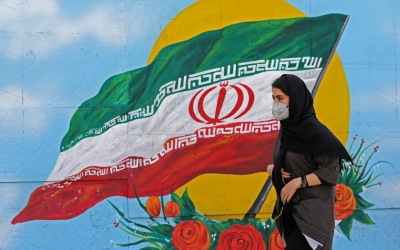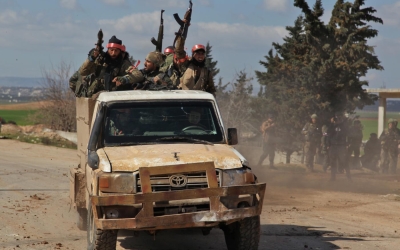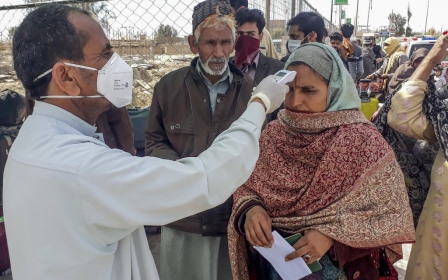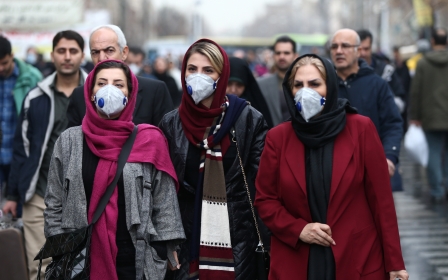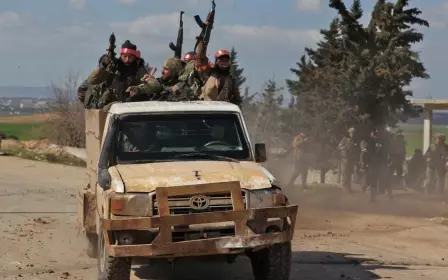Iranian press review: Lawmaker blames US bioterrorism for coronavirus outbreak

Bioterrorism blamed for high coronavirus death toll
Heshmatollah Falahatpisheh, a member of the Iranian parliament’s national security and foreign affairs committee, has said the high death toll from coronavirus in Iran is due to bioterrorism, the Aftab daily has reported.
“Trump uses different strategies [to reach his goals], one of which is bioterrorism,” he told the newspaper. “What has been happening in Iran is not normal.
“Even though Iranians have strongly followed hygiene guidelines, the coronavirus is still claiming lives in Iran.”
Iran said on Thursday that it had identified 1,075 new cases of the virus in the past 24 hours, bringing the total number to 10,075 confirmed cases in the country.
“While in some countries of the region, where the basic hygiene measures are not employed, they don’t have any problem [with the virus],” Falahatpisheh added.
Reza Nasri, an international lawyer and foreign policy analyst, has also stressed that the Trump administration is using the outbreak as a new means to intensify its maximum pressure campaign against Iran.
“Since the first diagnosed case was announced in Iran, American officials have [baselessly] accused Iran of lying and covering up the real number of diagnosed [cases] and death toll,” he told the IRNA news agency.
After China and Italy, Iran is the country hardest hit by the virus. IRNA has reported 429 deaths since the beginning of the outbreak.
False health advice over coronavirus proves deadly
The spread of false medical advice on Iranian social media platforms about the beneficial impact of methyl alcohol as a preventive measure against the coronavirus has caused several deaths in a number of cities in Iran.
According to the Tasnim news agency, seven people died in Alborz province due to the consumption of methyl alcohol.
Meanwhile, the ISNA news agency reported that on Saturday and Monday 331 people had been hospitalised in Khuzestan province for methanol poisoning, 20 of whom have died.
Following last week’s deaths, Iranian media published articles and interviewed experts about the false advice and stressed the deadly impact of drinking methyl alcohol.
Outcry over jail sentence for Iranian Golden Bear winner
A one-year prison sentence has been handed to the internationally acclaimed Iranian director Mohammad Rasoulof, just three days after his latest movie, There Is No Evil, won the top award at the Berlin film festival, the director’s official Instagram page has reported.
Rasoulof, who was already banned from leaving Iran and could not participate in the festival in the German capital, was convicted of “spreading propaganda against the system” in three of his movies.
Last week, the Islamic Revolution Court summoned the director to serve the prison term, but Rasoulof’s lawyer Naser Zarafshan declared that his client would not turn himself in and would appeal against the order.
The sentence, the most recent case of the government exerting pressure on Iranian artists, has sparked fury among the country's cinematographers and international film academics and festivals.
Iranian director Mohsen Amiryoussefi, the head of the Directors Guild of Iran (DGI), told the Borna news agency that Rasoulof’s sentence was “shocking” and that “[the] DGI will stand with him [to solve the case].”
Meanwhile, officials at the Cannes film festival, Berlin film festival and the European Film Academy have called for an international response to Rasoulof’s prison sentence.
On 7 March, an Instagram post supposedly written by Rasoulof on his official page, read: “I make movies, therefor(e) I am. If you ban me from making movies, I will write, therefor(e) I will be … if you don’t let me write, I will think, therefore I will be. I will keep being a thorn in the eye of censorship.”
Political chaos in Afghanistan attracts attention in Iran
The main headline on the front page of most newspapers in Iran on Monday was about the two Afghan political leaders who have both claimed victory in the country’s latest presidential elections.
Ashraf Ghani and Abdullah Abdullah both took separate oaths and held inauguration ceremonies at the start of the week.
Afghanistan’s electoral commission has declared incumbent Ghani the winner of the September election, however Abdullah has accused Ghani’s administration of electoral fraud and rejected US mediation efforts.
Afghanistan has been an important playground for Iran’s foreign policy due to the two-decade presence of the US army on its territory, and the three million Afghan refugees who are still living in Iran.
Iranian politicians and analysts have closely followed current developments, particularly February’s peace deal between the US and the Taliban. Some believe the deal will help the US to increase its pressure on Iran.
Meanwhile, the deepening rivalry between the two Afghan leaders, and the US inability to create a new national unity government, has been translated by Iranian conservatives as another triumph over US policies in the region.
In an analysis about the political future of Afghanistan, Tasnim wrote that the inauguration of rival Afghan leaders on the same day is a historical event that “marks the death of American democracy in Afghanistan”.
“Following the 20 years of the Americans large military presence in Afghanistan, its costs and the deaths [of Afghans and Americans], the only achievement [for the US] is to have two kings in one kingdom,” the article concluded.
Iran needs peace in Idlib, says Iranian expert
Sergei Vershnin, the Russian deputy foreign minister, and Kazem Jalali, the Iranian ambassador to Russia, have held a meeting about the latest developments in Idlib, stressing the two countries' interest in adapting the frameworks introduced in the Astana process, IRNA news agency reported.
In 2017, in the Kazakhstan capital Nur-Sultan (previously named as Astana), Russia, Turkey and Iran agreed to enforce a ceasefire among the warring factions in Syria.
In recent months, the tensions between Russian and Turkish armed forces, as well as Syrian armed groups, has intensified during the battle to control the Syrian city of Idlib.
Russian and Turkish leaders reached an agreement for a ceasefire on 6 March, after four months of violence and bloodshed that displaced over one million Syrians.
Meanwhile, foreign advisers in Iran suggested that Iranian officials also support the ceasefire because they believed that if the conflict in Idlb continues, a fiercer armed encounter between Russia, Turkey and Iran could be possible.
“The Iranian government is aware of the negative outcomes of the conflicts [in Idlb],” Hadi Borhani, an Iranian foreign policy expert, told IRNA. “Due to this understanding, Iranian officials have applied a cautious and conciliatory approach towards the conflict.
* Iranian press review is a digest of reports that are not independently verified as accurate by Middle East Eye
Middle East Eye delivers independent and unrivalled coverage and analysis of the Middle East, North Africa and beyond. To learn more about republishing this content and the associated fees, please fill out this form. More about MEE can be found here.


